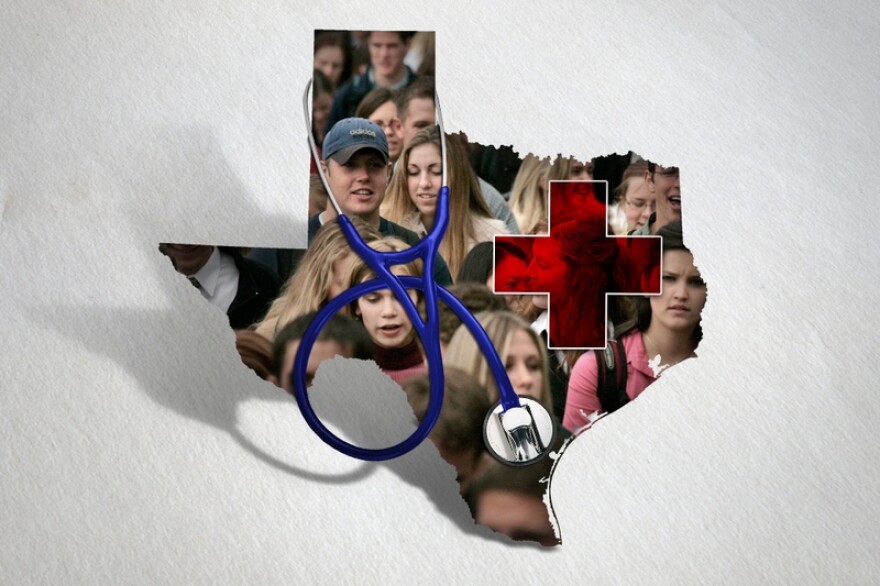From the Texas Tribune:
The rate of Texas residents without health insurance has dropped slightly but continues to outpace every other state, according to early figures released Tuesday by the U.S. Census Bureau.
The 2013 American Community Survey’s estimates show that the rate of uninsured Texans dipped to 22.1 percent in 2013 from 22.5 percent in 2012. The figures indicate that Texas had 14,000 fewer uninsured residents last year than the year before.
The new estimates complicate efforts to gauge the effectiveness of the federal Affordable Care Act, which required most Americans to purchase health insurance by March 2014.
Federal health officials put the total number of Texas enrollees in the federal health insurance marketplace created under the ACA at 733,757, and it was estimated that thousands of other Texans could have purchased private health insurance. But officials have not provided figures on how many of these individuals were previously uninsured.
The American Community Survey includes uninsured rates for the 2013 calendar year. But insurance plans purchased through the ACA marketplace did not go into effect until January 2014. Additionally, Texas enrollment in the federal marketplace was dismal during the first months of enrollment in 2013. It more than doubled in the month leading up to the April 19 enrollment deadline.
The figures released Tuesday rely on a different survey than the one usually used to illustrate the rates of the state’s uninsured.
In previous years, the Census Bureau’s Current Population Survey put the uninsured rate in Texas at 24.6 percent — which equaled more than 6 million Texans. But officials opted to release state-specific uninsured estimates from the American Community Survey because of changes to the methodology used in the Current Population Survey.
The American Community Survey puts the number of uninsured Texans closer to 5.7 million.
The Kaiser Family Foundation estimates that 1 million uninsured Texans fall into the “coverage gap” created by the state when it declined to expand Medicaid eligibility to adults who make too much to qualify for Medicaid but do not make enough to qualify for tax credits to purchase coverage through the health insurance marketplaces.
Texas’ Republican leadership argued that Medicaid needs to be overhauled before it is expanded.
Had Texas expanded Medicaid to cover impoverished adults, the federal government would have covered 100 percent of expansion costs for three years, eventually reducing its coverage to 90 percent. The federal government currently provides Texas with $60 in matching funds for every $40 the state spends on Medicaid services.
This story was produced in partnership with Kaiser Health News, an editorially independent program of the Henry J. Kaiser Family Foundation, a nonprofit, nonpartisan health policy research and communication organization not affiliated with Kaiser Permanente.



